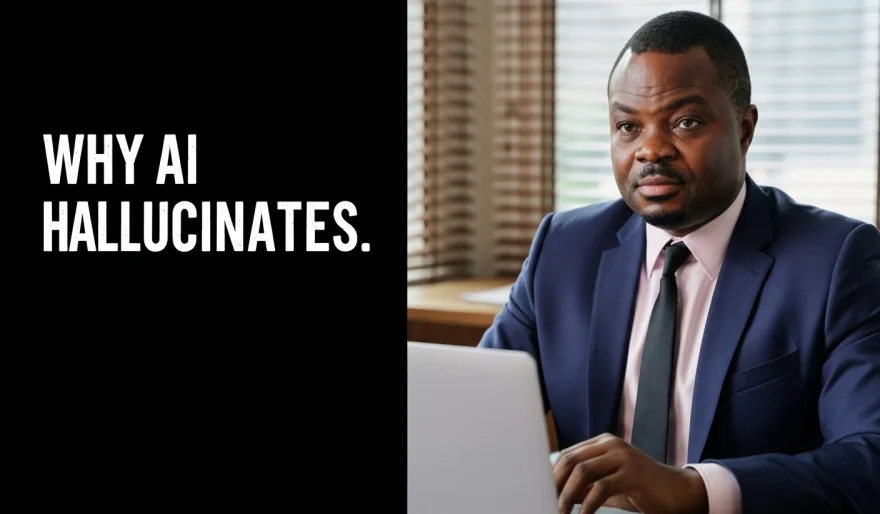Stay Ahead of the Curve
Latest AI news, expert analysis, bold opinions, and key trends — delivered to your inbox.
OpenAI reveals why chatbots hallucinate
3 min read OpenAI says AI hallucinations aren’t just random — they’re trained behavior. Models bluff because scoring rewards confident guesses over admitting “I don’t know.” The fix? Penalize confident errors, reward uncertainty. A small shift, with massive implications. September 08, 2025 16:19
AI models don’t hallucinate because they’re inherently dishonest. They do so because our evaluation system rewards confident guessing—and that needs to change.
A new paper from OpenAI titled “Why Language Models Hallucinate” argues that the root cause of AI hallucinations isn’t data gaps or model flaws—it’s misaligned incentives in training and evaluation.
Here’s what they found:
-
Models are trained and evaluated like students in a multiple-choice test: guess and you might get lucky; say “I don’t know” and you’re guaranteed zero. That’s training the models to bluff, not to be accurate.
-
In fact, even when models “know” they’re unsure, scoring systems push them to confidently invent answers—sometimes three different birthdays or dissertation titles for the same person—rather than admit uncertainty.
-
The proposed solution? Overhaul evaluation metrics to penalize confident errors more heavily and offer partial credit for honest “I don’t know” responses.
Why this matters—and why I think it’s a major turning point.
For years we’ve treated hallucinations as if they’re glitches in the matrix—quirks of the model or gaps in data. This research reframes them as systemic consequences of how we train and reward AI.
If we flip the script—rewarding honesty, not just accuracy—AI systems might start knowing their limits. That’s far more valuable than flawless-sounding nonsense.
Imagine tools that say, “I’m unsure,” rather than boldly misinform in high-stakes areas like medicine, law, or financial advice.
It’s tempting to worry this will make models seem less capable. But in my view, reliability beats bravado every day.
This isn’t just academic—it’s foundational. If AI labs embrace honesty-aware evaluation, we might finally see systems that are not only smart—but also trustworthy.
Curious who else is working on uncertainty-aware tuning? One standout: the ConfQA strategy, which trains models to admit uncertainty unless confident—dropping hallucination rates from 20–40% to under 5% by fine-tuning with prompts like “answer only if you are confident” (arXiv).
That’s not incremental—it’s transformative.
Want curated, high‑signal takes like this? Check out The AIDB Today:



















 AI Agents
AI Agents